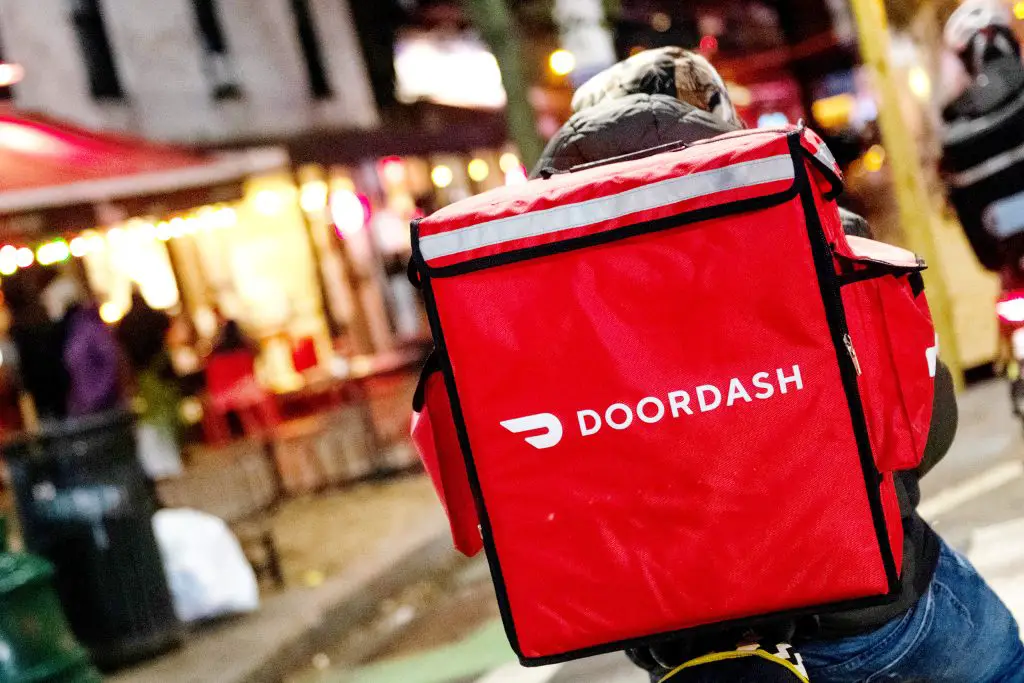In the fiercely competitive realm of food delivery services, DoorDash, one of the leading players, recently made waves with its candid acknowledgment. The company suggested that customers who don’t tip on their orders might experience longer delivery times. This revelation has sparked a flurry of reactions, ranging from concerns about transparency to debates about the ethics of tipping in the gig economy.
How Does Tipping Influence Delivery Time?
Before diving into the implications of DoorDash’s warning, it’s crucial to understand the mechanism behind it. When customers place an order through DoorDash, they have the option to tip their driver in advance. These tips, combined with a base pay from DoorDash, comprise the driver’s total potential earnings for a particular delivery.
Dashes (DoorDash drivers) see the total payout, which includes the tip, before deciding whether or not to accept the delivery. Naturally, orders with higher payouts (i.e., higher tips) are more enticing to drivers and are likely to be accepted faster than orders with lower or no tips. Thus, an order that doesn’t have a tip attached might circulate longer in the system before a driver opts to deliver it, potentially leading to longer delivery times.
Public Reaction and Concerns
The acknowledgment from DoorDash has drawn a mixed bag of responses:
Transparency and Clarity: Some consumers appreciate DoorDash’s transparency, arguing that it’s essential for users to understand the implications of their choices. By tipping, they’re not only compensating drivers but also ensuring swifter delivery.
Pressure to Tip: On the other side of the coin, critics argue that this system puts undue pressure on customers to tip, even if they might have reservations about it. They believe that the company is indirectly making tipping mandatory for timely service.
Gig Economy and Fair Compensation: This situation also shines a light on the broader debate about the gig economy. Should the responsibility of adequately compensating drivers fall squarely on the customer’s shoulders? Or should companies, profiting from these services, ensure a more consistent wage for their drivers?
Ethics of Tipping in the Gig Economy
The gig economy, characterized by short-term contracts and freelance work as opposed to permanent jobs, has seen exponential growth over the past decade. Platforms like DoorDash, Uber, and Airbnb have given individuals the flexibility to work on their own terms. However, this flexibility often comes at the cost of traditional benefits and consistent pay.
Tipping has been a controversial topic in various industries, especially in the hospitality sector. But in the realm of app-based delivery services, it’s even more contentious.
While tipping is a way to show appreciation for good service, the structure of DoorDash’s system might make it feel like a requirement rather than a choice. If tipping becomes the primary deciding factor for timely service, are we moving further away from the fundamental principles of gratuity?
Comparisons with Other Delivery Services
Other major delivery services have their own structures and policies regarding tipping. For instance, platforms like UberEats and Grubhub also allow drivers to see the potential earnings before accepting an order. However, the extent to which tips influence delivery times varies across platforms, and DoorDash’s candid acknowledgment makes it a standout case.
DoorDash’s revelation about the correlation between tipping and delivery times is more than just an operational detail; it’s a reflection of the complex dynamics of the gig economy. As consumers, the choices we make, including whether or not to tip, have direct consequences. However, the responsibility also lies with gig economy platforms to ensure their workers are compensated fairly and transparently.
As we navigate this evolving landscape, it’s essential for both consumers and companies to engage in open dialogues and make informed choices. Whether that means restructuring the tipping system, reevaluating driver compensation, or refining platform algorithms, the ultimate goal should be a fair and efficient service for all stakeholders involved.
Given the complexity of the issue at hand, a multifaceted approach might be required to strike a balance between fair driver compensation and customer satisfaction.
Guaranteed Minimum Wage for Drivers: One possible solution could be for DoorDash and similar platforms to guarantee a minimum wage for their drivers. This would ensure that even if a customer doesn’t tip, the driver’s basic earnings remain unaffected. However, implementing such a structure might lead to increased costs for the company, which could, in turn, be transferred to the customers through increased fees.
Tiered Delivery Options: Another proposal is to have tiered delivery options where customers can choose from standard delivery (with no expectation of tipping for speed) and premium delivery (where a tip guarantees faster delivery). This would make the tipping process more transparent and give customers more agency in their choices.
Education and Awareness: Often, customers might not be fully aware of the impact of their tips on delivery drivers’ livelihoods. Raising awareness about the challenges gig workers face and how tips form a significant part of their earnings can influence tipping behavior.
Revised Business Model: The larger question also pertains to the sustainability of the gig economy’s business model. Companies could explore more sustainable models that ensure better earnings for drivers without over-relying on customer tips. This could include subscription models, partnerships with restaurants, or bulk delivery options.
Feedback and Continuous Improvement: Platforms like DoorDash should continuously gather feedback from both drivers and customers. Understanding the pain points of both sides can lead to iterative improvements in the platform, ensuring a win-win for everyone involved.
The Broader Implication for the Gig Economy
DoorDash’s tipping revelation is not an isolated incident. It is emblematic of broader challenges within the gig economy. As more sectors and industries move towards gig-based models, the challenges faced by DoorDash could become universal.
For a sustainable future, both companies and regulators need to evaluate the gig economy critically. Comprehensive policies that ensure fair compensation, benefits, and worker rights, while also allowing companies to innovate and thrive, will be crucial.
The intersection of technology, business, and labor in the gig economy is creating new paradigms of work. While platforms like DoorDash offer unparalleled convenience to customers and flexible work opportunities to drivers, they also bring to the fore complex issues like the tipping dilemma.
As consumers, being informed and empathetic can make a difference. As businesses, transparency and a commitment to fairness can pave the way for a more harmonious ecosystem. The ongoing discourse on tipping and delivery times is just one chapter in the unfolding story of the gig economy. How all stakeholders respond will shape the narrative of this rapidly evolving sector.






